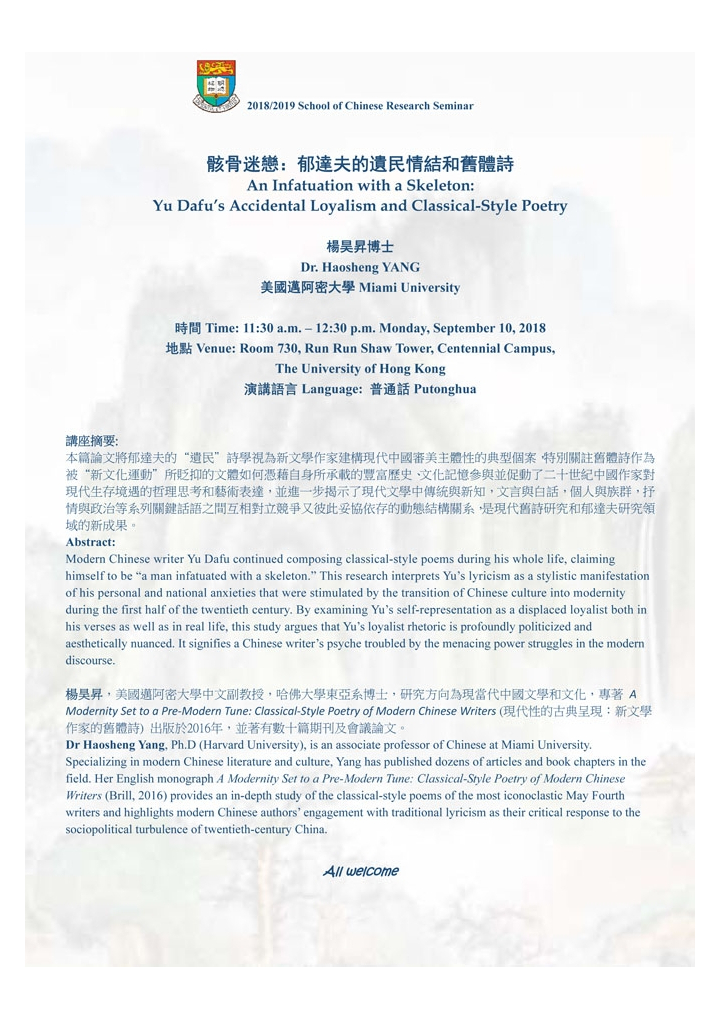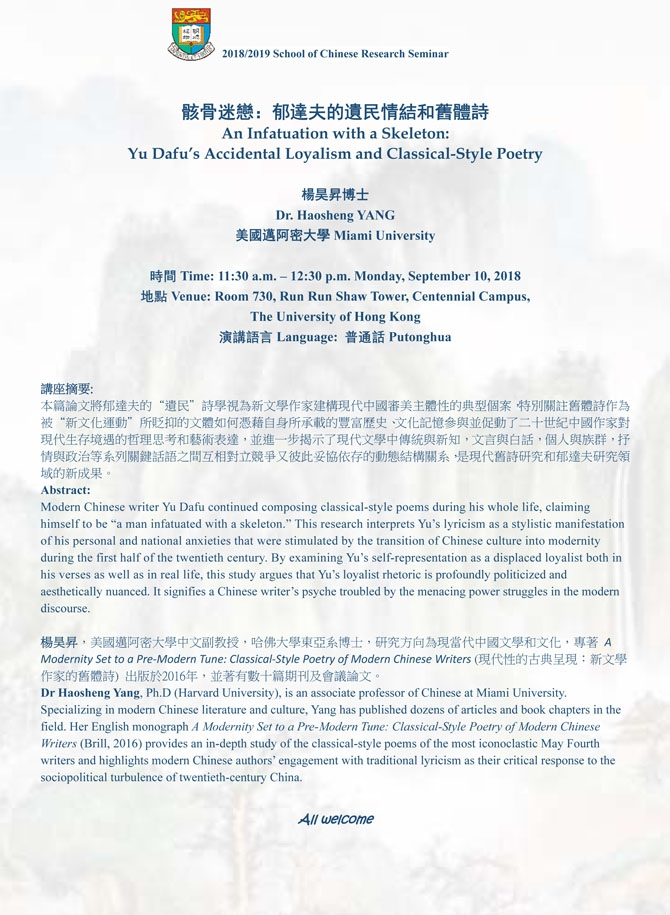骸骨迷戀:郁達夫的遺民情結和舊體詩

2018/2019 School of Chinese Research Seminar
骸骨迷戀:郁達夫的遺民情結和舊體詩
An Infatuation with a Skeleton:
Yu Dafu’s Accidental Loyalism and Classical-Style Poetry
楊昊昇博士
Dr. Haosheng YANG
美國邁阿密大學Miami University
時間Time: 11:30 a.m. – 12:30 p.m. Monday, September 10, 2018
地點Venue: Room 730, Run Run Shaw Tower, Centennial Campus,
The University of Hong Kong
演講語言Language: 普通話Putonghua
講座摘要:
本篇論文將郁達夫的“遺民”詩學視為新文學作家建構現代中國審美主體性的典型個案,特別關註舊體詩作為被“新文化運動”所貶抑的文體如何憑藉自身所承載的豐富歷史、文化記憶參與並促動了二十世紀中國作家對現代生存境遇的哲理思考和藝術表達,並進一步揭示了現代文學中傳統與新知,文言與白話,個人與族群,抒情與政治等系列關鍵話語之間互相對立競爭又彼此妥協依存的動態結構關系,是現代舊詩研究和郁達夫研究領域的新成果。
Abstract:
Modern Chinese writer Yu Dafu continued composing classical-style poems during his whole life, claiming himself to be “a man infatuated with a skeleton.” This research interprets Yu’s lyricism as a stylistic manifestation of his personal and national anxieties that were stimulated by the transition of Chinese culture into modernity during the first half of the twentieth century. By examining Yu’s self-representation as a displaced loyalist both in his verses as well as in real life, this study argues that Yu’s loyalist rhetoric is profoundly politicized and aesthetically nuanced. It signifies a Chinese writer’s psyche troubled by the menacing power struggles in the modern discourse.
楊昊昇,美國邁阿密大學中文副教授,哈佛大學東亞系博士,研究方向為現當代中國文學和文化,專著 A Modernity Set to a Pre-Modern Tune: Classical-Style Poetry of Modern Chinese Writers (現代性的古典呈現:新文學作家的舊體詩) 出版於2016年,並著有數十篇期刊及會議論文。
Dr Haosheng Yang, Ph.D (Harvard University), is an associate professor of Chinese at Miami University. Specializing in modern Chinese literature and culture, Yang has published dozens of articles and book chapters in the field. Her English monograph A Modernity Set to a Pre-Modern Tune: Classical-Style Poetry of Modern Chinese Writers (Brill, 2016) provides an in-depth study of the classical-style poems of the most iconoclastic May Fourth writers and highlights modern Chinese authors’ engagement with traditional lyricism as their critical response to the sociopolitical turbulence of twentieth-century China.
All welcome









